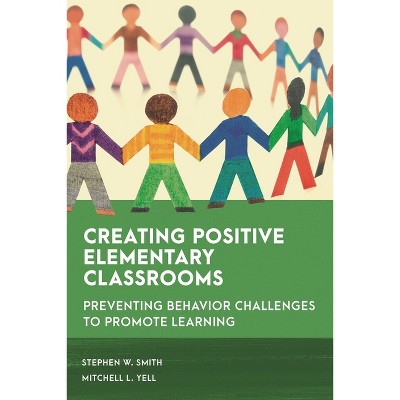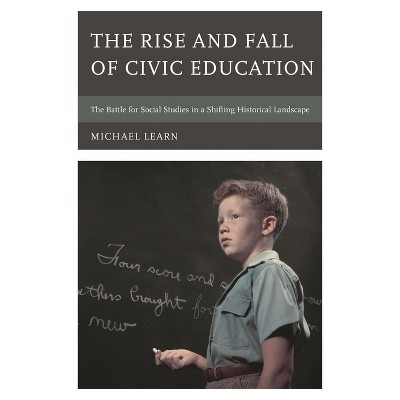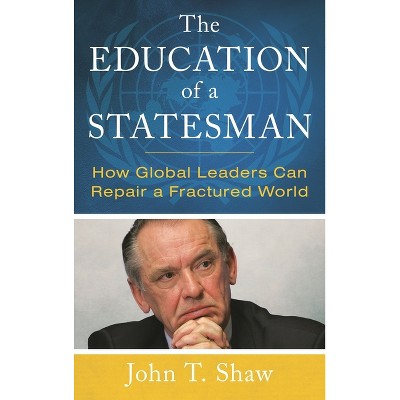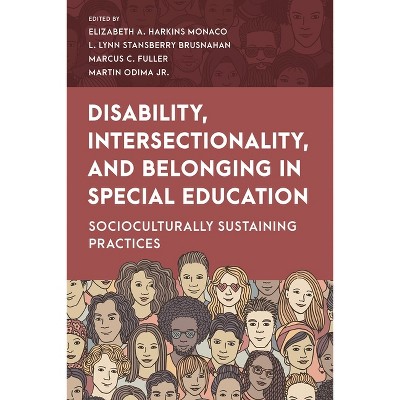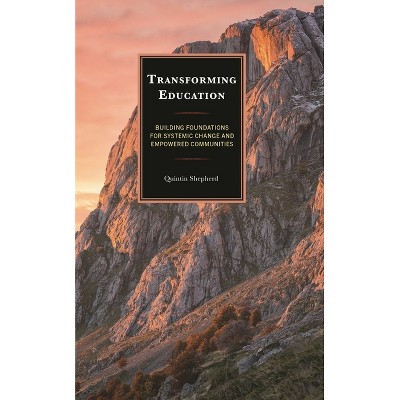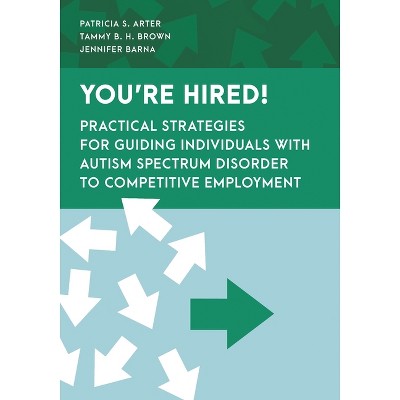Finishing First in Science Education - by Lillian Riggs Johnson (Paperback)

About this item
Highlights
- School officials often examine teaching science from the perspective of the academic performance of K-12 children and the performance of the teacher.
- About the Author: Lillian Riggs-Johnson's research over the last decade in education has led her on a path to follow American youth and their performance on international math and science assessments.
- 192 Pages
- Education, Teaching Methods & Materials
Description
About the Book
The book looks at changing the way science is being taught in K-12 schools.Book Synopsis
School officials often examine teaching science from the perspective of the academic performance of K-12 children and the performance of the teacher. But rarely do we see teacher preparation programs examined under the same scrutinization. Finishing First in Science Education takes an inside view of these programs by transforming actual events into teaching case studies. The case studies serve to encourage desirable skills within pre-service teachers and teacher educators. Employers all over the world desire creativity, critical thinking, collaboration, and communication skills. Educators can embrace these skills and emphasize them in teaching and learning.
Review Quotes
Dr. Johnson's case studies reflect her experience in the educational system as she presents views from all stakeholders-- teachers, principals, and students. Dr. Johnson does not just recognize the difficulty of implementing new methods for STEM learning, she presents approaches to overcoming these obstacles.
How insightful, purely ingenious! Lillian has taken a tremendous leap into the assessment of how we deliver our science training programs. Often, we focus on methods of teaching science. But how are science teachers delivering lessons? Are we training pre-service teachers to think, explore multiple options, develop their own roadmaps, and attack problems from different perspectives? Lillian dove headfirst into seeking answers to these vital questions. It is of paramount importance for schools of education to refocus and revisit the training programs to help preservice teachers. The only way we can become 'first in science' is to embed teachers with skills that help them to become exceptional science teachers who educate exceptional science students.
Riggs-Johnson provides readers with a practical guide to transforming STEM education for students, with a particular focus on students from groups currently underrepresented in high-level science classes. The target audiences include teachers, educators and their students, administrators looking to transform their schools' STEM achievement, and teachers seeking professional development. Riggs-Johnson begins with the need for improvement, including disappointing results from international comparisons. Once establishing the need, she methodically presents all the ways in which transformation will be difficult, including resistance to change on the part of all parties. She discusses overcoming elementary school teachers' lack of preparation in STEM subjects, insufficient room and supplies for meaningful lessons, and tolerance for collaborative work on the part of students, who might be noisier than the school staff prefers. Rather than simply leaving readers with an analysis based on trends and data, Riggs-Johnson provides big-picture policy recommendations and more small-bore ideas for workshops and case studies to explore and try. The beauty of the volume is how it coaches multiple audiences with respect, promoting confidence that change is doable and worthy. Recommended. Advanced undergraduates through faculty; practitioners.
We need as many minds as possible familiar with numerous phases of STEM, helping to solve the myriad of problems in our deteriorating environment. Finishing First in Science Education presents an excellent concept of using scenarios and case studies to reach teachers in training.
About the Author
Lillian Riggs-Johnson's research over the last decade in education has led her on a path to follow American youth and their performance on international math and science assessments. Her lifetime of work in the field of biomedical research and teacher training has culminated in Finishing First in Science Education: What Will It Take?





